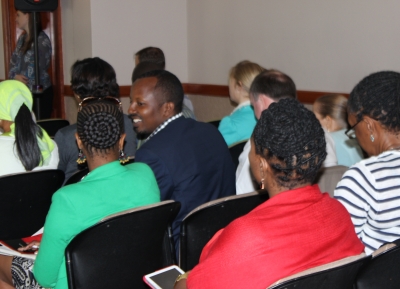
STRIVE co-hosted a two-day gathering in Cape Town to explore the challenges of implementing structural HIV programmes.
For the third time, STRIVE collaborated on this conference series with HEARD (the Health Economics and HIV/AIDS Research Division at the University of KwaZulu-Natal) and the HIV and development group at the University of East Anglia. Presentations from a previous conference were published in special issue of the Journal of the International AIDS Society in 2012. For presentations from the 2013 event, follow links on the conference programme.
The 2013 conference took as its theme 'Contextualising Structural Drivers of HIV and AIDS'. As Dr Kaymarlin Govender from HEARD notes in a video interview:
The discourse is moving towards more broad development goals – poverty alleviation, gender equality, human rights. People are engaging with how to understand these sociologically plausible pathways. I use the term ‘sociologically plausible pathways’ because they are embedded in social and institutional issues as opposed to being epidemiological and biomedical. And that’s the kind of tension we pick up in conferences like this – a tension between the biomedical and the social practice.
Scheduled to precede ICASA (the International Conference on AIDS and STIs in Africa), the structural drivers conference was able to draw a large number of presenters and participants from the Southern African region. A gallery of images from both conferences conveys a sense of the discussions and issues.
President Mandela passed away on 5 December, during the Cape Town conference. In a YouTube interview, Zackie Achmat of the South African Treatment Action Campaign (TAC) recalled the former president's role in addressing HIV in South Africa.
Photo credit: HEARD



